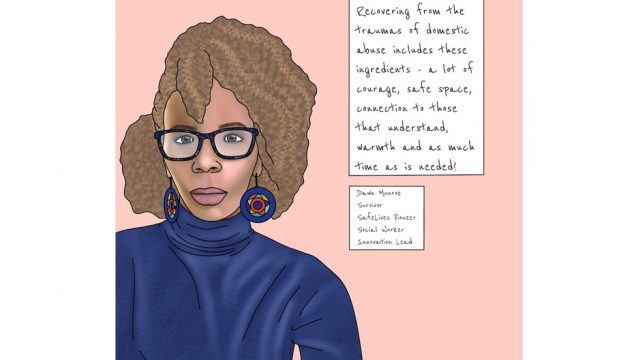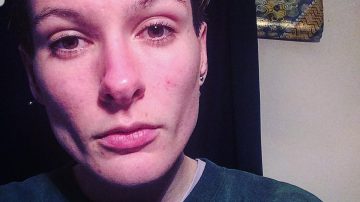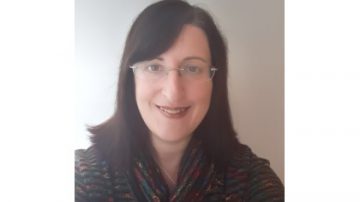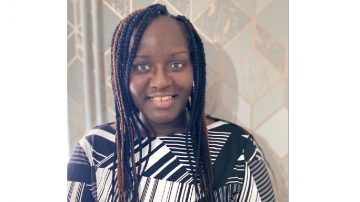So, let’s get into it – Domestic Abuse and the Black community, and the barriers to seeking help. So, what are my qualifications for sharing on this topic?
First and most importantly to me, I am a survivor and sometimes a thriver of domestic and sexual violence. I have lived experience of being a child who grew up in a violent household and then headed off into my own violent relationships. Secondly, I am a practitioner and work for the wonderful SafeLives, a national charity whose aim is to end domestic abuse. Previous to this I was a Child Protection Social Worker in Nottingham, supporting children and families exposed to domestic abuse, and for the Youth Sector working with young people impacted by public and private violence. I am also a founder and director of Bambuuu a By and For service in Nottingham and Derby dedicated to supporting Black and Brown women who are experiencing or who are recovering from domestic abuse (DA). We established during Covid when domestic abuse rates escalated, to ensure that the needs of Black women were met.
If I were a stat!
If I were a stat! Then as a woman I have a 1 in 4 chance of experiencing DA and could belong to the list of dead women who are dying 3 per week as a result of suicide or domestic abuse.
If I were a stat! Then I would be 3% more likely to have experienced physical abuse and 4% more likely to have experienced sexual violence as a Black woman.
If I were a Stat! What support would I get from the Police?
Sistah Space, a domestic abuse service for Black women in London campaigned for Valerie’s law, following the death of Valerie and her baby. The Police wrongly recorded the threats of violence made towards her, as threats to property, rather than life. Their research shows that 86% of Black women in the UK had been a victim or know a family member who has been assaulted, however only 57% of victims would report to the Police.
If I were a stat! Would previous racist experiences be a barrier for someone like me from accessing support from the police through fear of more racial trauma?
If I were a stat! What would my experience through the criminal and family court system be like? A freedom of info request across 30 Police forces and the CPS showed that Black victims of sexual violence and rape were 1.5 times less likely to see the Police bring any charges.
If I were a stat! Then according to the national DA charity Refuge, as a Black woman I would be 14% less likely to be referred by the Police to their support services than a white woman.
If I was a stat! Then according to the Runny Mede Trust, I am more likely to be a single mum than a white woman and I would be impacted by the cost-of-living crisis hardest, with a total loss of £4900 a year. They describe the cost-of-living crisis, as “fatal for working class minority and migrant women”. Financial abuse is often a factor of why women are forced to stay in abusive relationships.
As a domestic abuse survivor, I could be in the 32% of homeless women who informed research carried out by SafeLives that domestic abuse contributed to their homelessness.
If I were a stat! Then as Rethink Mental Illness, found in 2021, as a survivor of domestic abuse I would be more likely to experience an anxiety disorder or depression and that Black suspects were much more likely to have been identified by the Police as having a mental health problem (44% Black; 36% White; 20% Asian).
Despite the strong association, domestic abuse often goes undetected within mental health services and domestic abuse services are not always equipped to support mental health problems.
There is a wealth of evidence that links domestic abuse, sexual violence and mental health, although as a Black woman the evidence around our experiences is limited in such research, our voices are unheard.
If I were a stat! What would the figures look like in my community when the advice from my peers is “That it is best we sort it ourselves, Don’t tell anyone, Don’t speak about it, Don’t think about it”
If I were a stat! Then I am told after seven attempts I may leave for good, is this accurate for Black women, who face racial barriers and different types of abusive tactics? And when and if I eventually find the courage to leave, who do I reach out to and count on for support?
If I go to a mainstream service, would I see anyone there who looked like me? Would I have a sense of belonging? Would my safety plan consider the racial barriers I may face or have experienced?
By and for services such as Bambuuu are so important and need to exist so we can help end domestic abuse for everyone but the stats, they evidence that less and less funding is available for services that are dedicated for Black and Minoritised groups.
Will my children who are also victims be adultified and supported? Will my Black sons talk to the Police because if they were a stat! They would be 9 times more likely to have been stopped and searched.
What if the tactics used by the perp were different to those in white communities? What if English was my second language or my immigration status was being used as a weapon to control me? Would these services understand that I may not be able to go into a refuge that doesn’t cater for my cultural needs? Would I be accused of minimising or failing to protect my children because they don’t understand that I also was raised in a house of violence so it may take me a little more time to recover from the effects of this trauma?
If I am a stat! assessed as high risk and my life and abuse is taken to a Multi-Agency Risk Assessment Conference (MARAC) then will those agencies around the table have a level of cultural competency to meet my needs? Would they know how to support those communities who have been impacted by generational trauma, such as Post Traumatic Slave Syndrome?
You may be thinking about the stats for the domestic abuse workforce? I am too but I couldn’t find those, so I will hazard a guess from experience there is a huge lack of Black practitioners in the sector.
If I were a stat! Then I probably wouldn’t have been included in the data collected, as there is so much missing regarding the Black experiences of domestic abuse.
Let’s touch on solutions and leave some food for thought.
Injustice
I am grateful that I am recovering from the abuse I experienced, and I am surrounded by Black and brown women who are recovering alongside me, Queens! Peer support with mutual aid has been the biggest part of my recovery. By and For support services in our sector seem to be becoming stronger and are being acknowledged more and more.
The Domestic Abuse Commissioners, strategy prioritises, the voices of Minoritised groups but we need Equity, the networks, resources and infrastructure of the By and For to be better equipped to support Black women.
As a community it is important that we speak out, that we support those who make a disclosure, that the community they belong to doesn’t accept harmful behaviors and perpetuate them further. We hear the voices of many Black women who have been condemned by their own families and communities for speaking out about the abuse instead of being lifted, for their bravery.
So, what do you do if you are or become a stat like me or know someone who does or is? Do you speak out, would you support, would you know how to?
I will end here with this, the stats they are just not stating! So, let’s instead focus and remember the Black women and men who have experienced DA and who are thriving right now this includes Oprah, Rihanna, Tina Turner, Tyler Perry, the women I work with at Bambuuu and Me!
Picture Credit – HOPE Digital Art Project – hopetraining.co.uk/digital-art-project/



